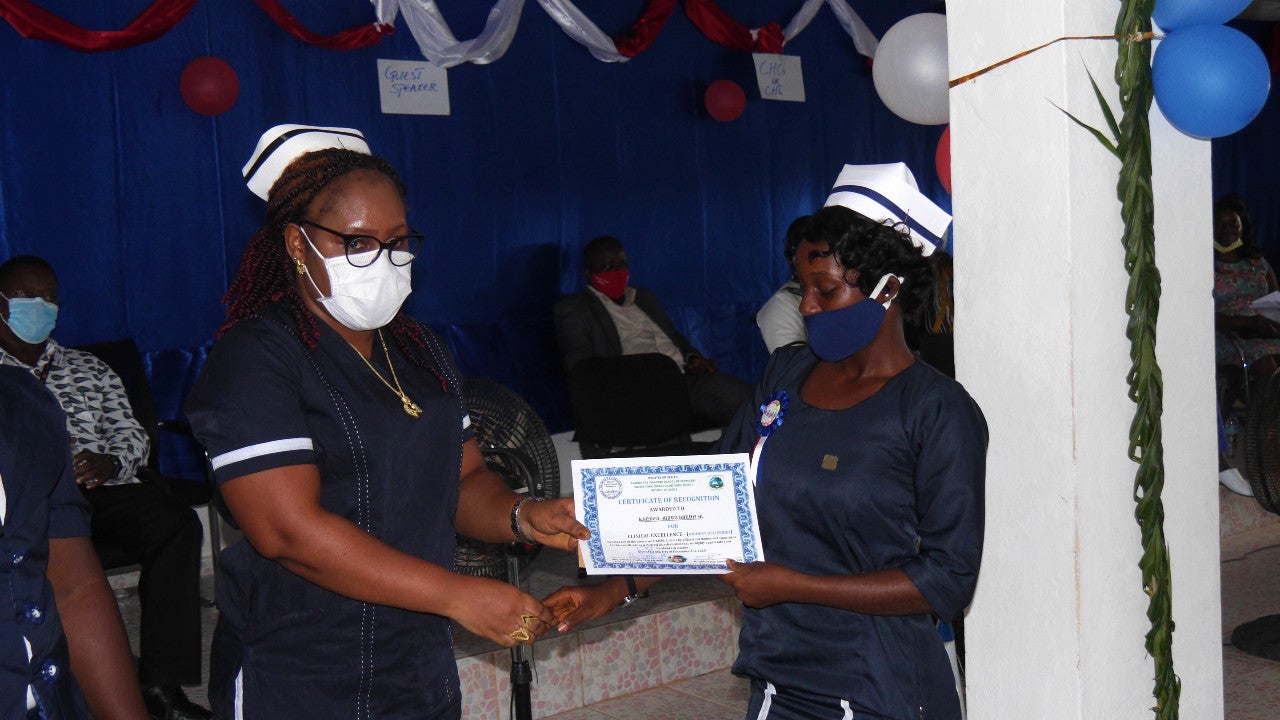MONROVIA, Liberia-Although there has been an increase in the number of births assisted by skilled attendants; 61 percent in 2013 to 84 percent in 2019-20, mothers and newborns remain at risk in Liberia as approximately 1,072 mothers die of causes related to pregnancy and childbirth for every 100,000 live births as a result of limited access to either basic midwifery or emergency obstetric care, such as caesarean sections.
The lack of trained midwives in most rural health facilities and the long distances women have to travel to access care are hindering the country’s efforts in reducing maternal and newborn mortality.
Investing in the training of midwives across Liberia
Today, it is estimated that Liberia has only one midwife or nurse to 2000 population; making it one of the countries with a low midwife to population ratio. And most of these midwives or nurses are working in urban areas - compounding the situation for rural women.
“We need more trained midwives to help save women’s and newborns. Midwives who can safely deliver women and ensure adequate care for their newborns; provide advice on family planning, nutrition, physical activity and preventing mother-to-child transmission of HIV,” says Marthalyn.
Marthalyn M. Kinyea is among 34 newly trained midwives who graduated on 5 December from the Deanna Kay Isaacson School of Midwifery located in Zwedru, Grand Gedeh County about 450 kilometers outside of Monrovia, the Capital.
Marthalyn says it is the passion to help women bring forth lives that attracted her to the midwifery profession.
My desire to become a professional midwife started when I was still a kid. I can recall when I was around age 7, my mother allowed me in the room where she was conducting delivery at home. I felt a special joy on that day,” Marthalyn recounts.
According to Marthalyn, having realized how happy and involved she was, her mother who was a Trained Traditional Midwife would decide to allow her attend subsequent deliveries of pregnant women when available.

a certificate of achievement to Marthalyn on behalf of the school.
@UNFPA Liberia/Calixte S. Hessou
Perhaps it is the skills and prior knowledge of the midwifery profession that guided Marthalyn to receiving a special recognition by the Deanna Kay Isaacson School of Midwifery for the highest number of deliveries conducted during her clinical training. She is said to have delivered about 154 babies.
The Deanna Kay Isaacson School of Midwifery was established in 1983 by the Ministry of Health and partners to train midwives for deployment in southeastern Liberia; a region with often acute shortage of professional health workforce.
Meeting their needs
Beyond training midwives, there is a need to retain them. Currently limited incentives and opportunities for career growth has been one the driving force behind the concentration of skilled birth attendants in urban communities in Liberia.
“Strengthening midwifery is essential to the provision of high-quality maternal and newborn care for all women and newborns and is critical to the implementation of the Ministry of Health Investment Plan for building a resilient health system,” says Dr. Bannet Ndyanabangi, UNFPA Representative.
Working in collaboration with the Ministry of Health, UNFPA, the United Nations Population is supporting the training of midwives at three of the five midwifery training schools in Liberia.
“UNFPA will continue to support midwifery schools as well as the health workforce including midwives across Liberia so more women survive childbirth and they, their families and communities thrive,” adds Dr. Ndyanabangi.
The Fund has supported the Liberia Board of Nursing and Midwifery to develop a direct-entry curriculum as well as a bridging programme for existing midwives at the bachelor's degree level to ensure a clear career pathway for midwives, and funded the first batch of 40 midwives to obtain BSc in Midwifery from a local university.
In addition, the UN Sexual and Reproductive Health Agency also supports regular capacity building for the Midwifery Association to embark on a midwifery led emergency obstetric and newborn care (EmONC) mentorship program.


